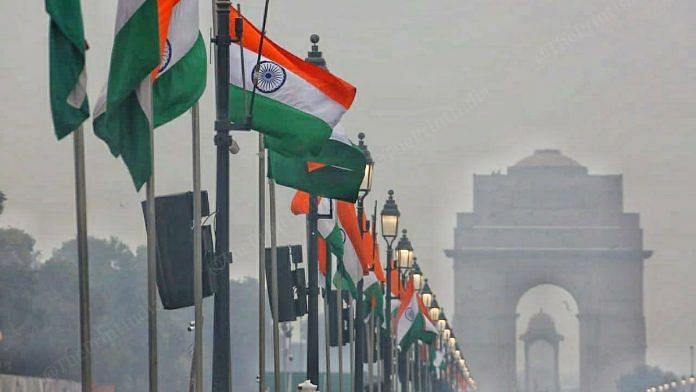
Thank you dear subscribers, we are overwhelmed with your response.
Your Turn is a unique section from ThePrint featuring points of view from its subscribers. If you are a subscriber, have a point of view, please send it to us. If not, do subscribe here: https://theprint.in/subscribe/
Every year a large number of Indian citizens renounce their citizenship for more economically stronger countries like the USA, UK and other western countries. When such announcements are made in the parliament there is a political blame game that starts on news channels and social media by both ruling parties and opposition. Opposition blames the government for creating an intolerant society and the government blames the opposition for its policies during their government as the root cause for the exodus. The truth of the matter is that neither of them is directly responsible for vast number of people renouncing their citizenship, the primary reason for majority of people taking up citizenship on another country is because it is their primary residence for many years and acquiring citizenship of their resident country is just banality of a process they started long time ago. In majority of cases most ex-citizens see net benefits in acquiring new citizenship compared to minor inconveniences they have to endure when they travel to India.
This process of renouncing citizenship was supercharged with the passing of citizenship (amendment) bill, 2005 which granted OCI (Overseas Citizenship of India) to former citizens and gave them most of privileges enjoyed by current citizens barring a few. The law when it was passed was truly remarkable during its promulgation as it cleverly balanced the line between domestic constituents and NRI’s. But as time passed it kept reminding OCI holders about its shortcomings, which doesn’t go the full distance in giving dignity and honor to people who stay abroad for work compulsions and still want to be close to their homeland by having a say over its policies. Former Indian citizens have immense personal connections in India, as it can be seen in their investments and remittances they send back long after acquiring foreign citizenship. Granting full dual citizenship will help in bridging the remorse millions of people feel when they have to make a decision to give up their citizenship. It is also difficult through bureaucratic red tape to gain back full citizenship if they change their mind to return to India permanently in the future. For example you don’t need to look any further than actor Akshay Kumar, who according to his own account applied for Canadian green card and later citizenship when his financial situation was not tenable during late 90’s as an actor. He recently started the process of re-acquiring Indian citizenship and it’s fair to say that this process is more bureaucratic than acquiring Canadian citizenship. His journey explains the primary instinct of financial security all of us desire in life and having the flexibility to go abroad and come back on your own terms is a good option. At various stages of our life when we feel vulnerable we tend to look for greener pastures for a sense of security and comfort, during this time when Indians who qualify for residency programs in western nations tend to apply in hope of having a back-up plan. Even during the application phase many play devil’s advocate whether it is worth their time and money towards something which they are not completely sure about. Vast majority of people who reside in another country yearn to come back or at least contemplate the thought of whether returning is a good option financially and socially. As time passes during their stay abroad many formalize their stay by applying for citizenship to get a sense of belonging and focus on other aspects of life. Many citizens who renounce their citizenship never gave up their personal connection with India which is strong even during their toughest times, if former citizens want to be back in their homeland and have a say in public affairs then the government’s objective should be to make it easier rather than difficult.
The proposal should include few safeguards to make sure misuse is minimized and threats to sovereignty and national security can be addressed. Currently under the citizenship amendment act of 2005, OCI holders are not entitled to certain rights under sub section (2) of section 7A which are right to vote, right to hold office in parliament and right to hold office in state legislative assembly. Out of the three, the right to vote should be granted unconditionally and the right to elected office at state and federal level be granted after completing five years of continuous residency in India. Other rights that are not guaranteed under the act include right to stand for president, vice president, appointment as a judge and equal opportunity with regards to public employment can be addressed by the later generation of elected members as democracy matures. With this proposal current OCI holders and future dual citizens will shed the tag of second class citizens and fully embrace their Indian identity.
These pieces are being published as they have been received – they have not been edited/fact-checked by ThePrint.
Also read: SubscriberWrites: India’s anti-defection Law is being manipulated for personal gains

COMMENTS